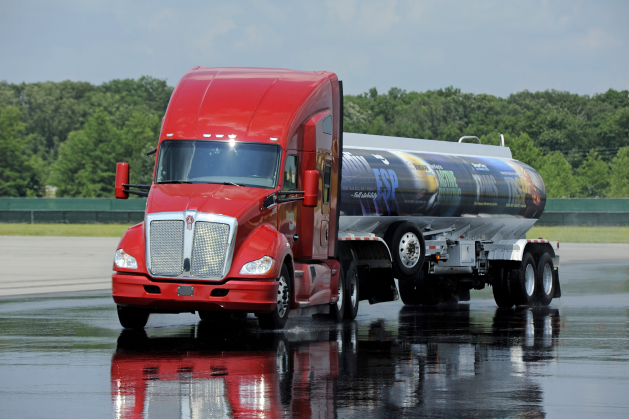Bendix ESP system now standard on Kenworth T680, T880
KIRKLAND, Wash.– Kenworth announced recently that the Bendix Electronic Stability Program is now standard on new Kenworth T680 and T880 tractors.
Bendix confirmed that the program meets the National Highway Traffic Safety Administration’s new electronic stability control (ESC) technology mandate, which goes into effect Aug. 1, 2017, on Class 8 tractors with tandem drive axles. 
“The T680 on-highway flagship and T880 vocational leader are Kenworth’s most technologically advanced vehicles. Kenworth’s move to standardize on the Bendix ESP system continues our offering of technology systems to help our customers achieve success in their specific operations,” said Kurt Swihart, Kenworth marketing director.
Kenworth T680 and T880 customers will receive, as standard, the Bendix 4S/4M configuration, which has four sensors and four modulators.
Bendix says the ESP is designed to help stabilize the vehicle during loss of control situations on dry, wet, snow and ice-covered roadways. In addition to using sensors that monitor lateral acceleration, as found on some roll-only systems, the Bendix ESP system also uses sensors to monitor steering angle and vehicle direction.
Have your say
This is a moderated forum. Comments will no longer be published unless they are accompanied by a first and last name and a verifiable email address. (Today's Trucking will not publish or share the email address.) Profane language and content deemed to be libelous, racist, or threatening in nature will not be published under any circumstances.